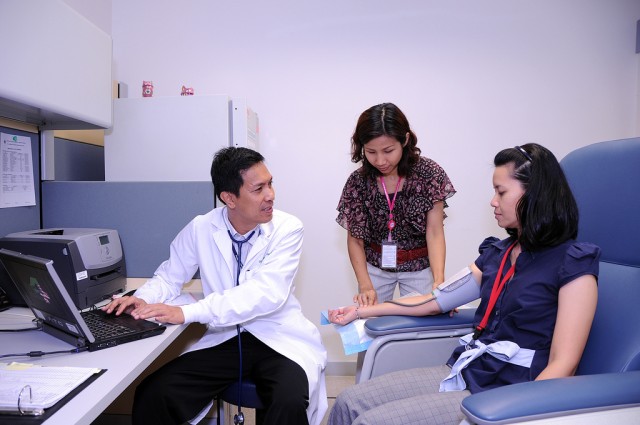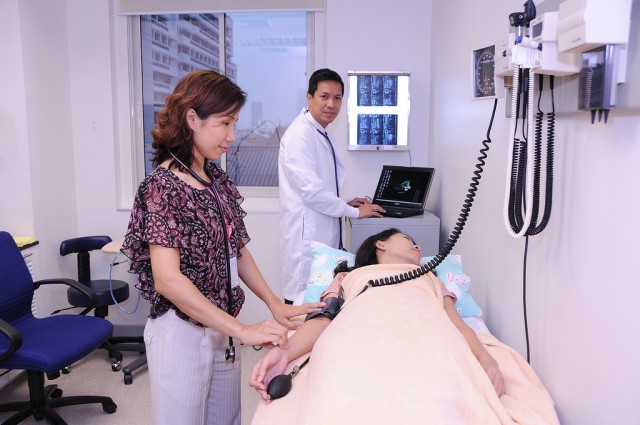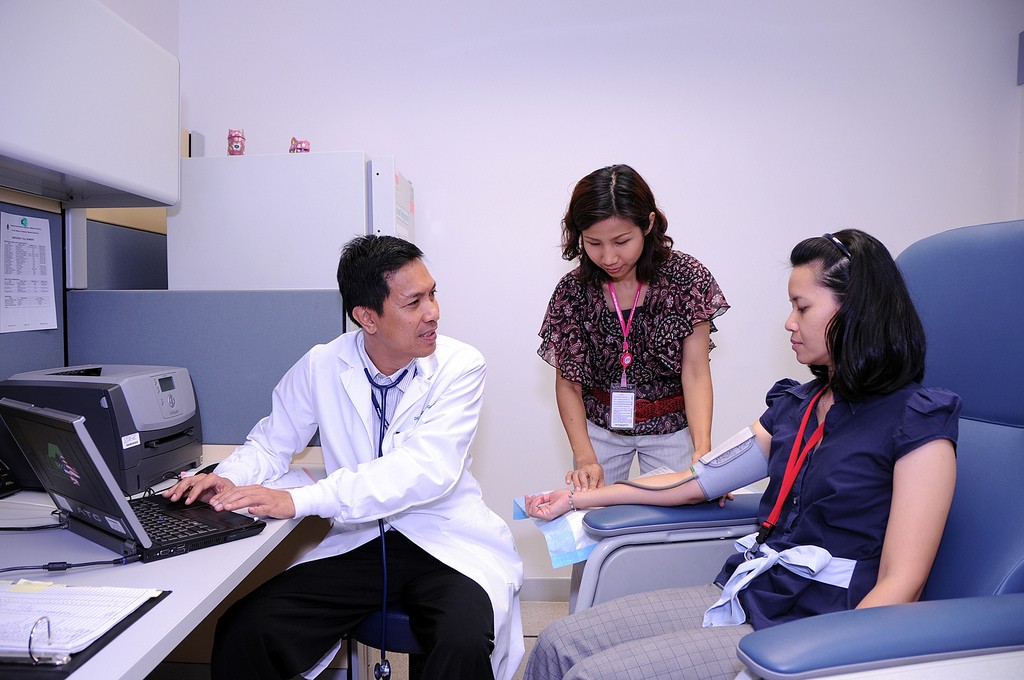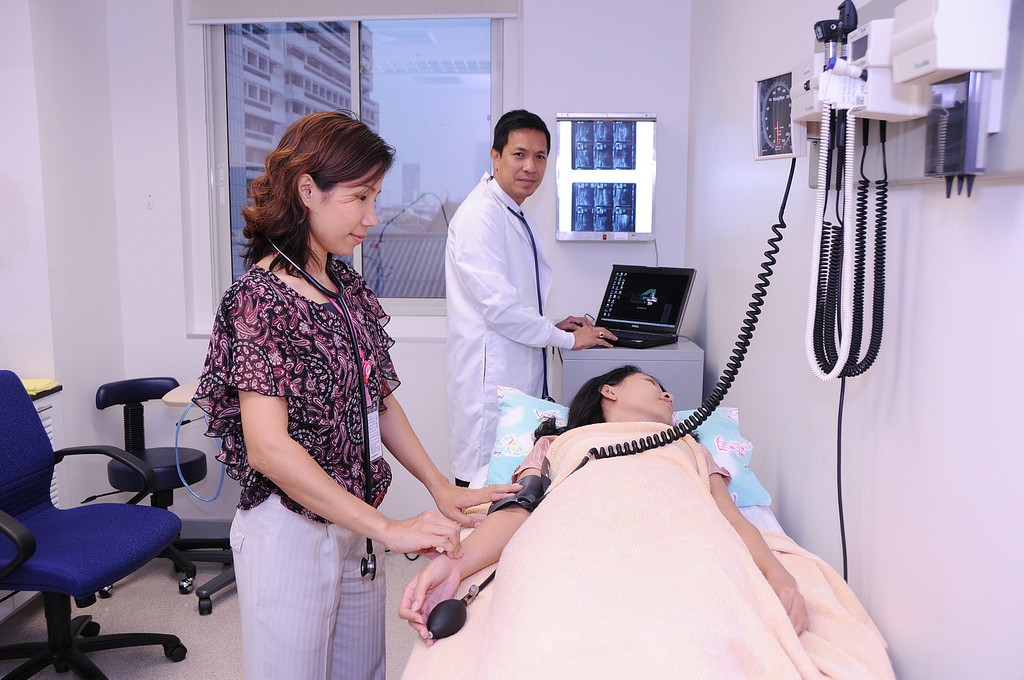In 2009, the U.S. Army announced the results of the world's largest HIV vaccine study in Thailand. The combination of two investigational vaccines proved to be 31.2 percent effective against a strain of the virus circulated in Thailand.
The Armed Forces Research Institute of Medical Sciences (AFRIMS), located in Bangkok, Thailand, participated in the study comprised of 16,000 HIV-negative volunteers. AFRIMS is a special foreign activity of the Walter Reed Army Institute of Research (WRAIR) in Washington, D.C., and the U.S. Army Medical Research and Materiel Command, Fort Detrick, Md.
On Army.mil, Lt. Gen. Eric Schoomaker, Surgeon General, U.S. Army said, "The Army will continue to be an aggressive sponsor and is committed to developing a globally effective HIV vaccine to protect U.S. and allied troops from infection and to support the U.S. National Security Strategy by reducing the global impact of the disease."
In addition to the HIV virus, the U.S. and Thai military and civilians at AFRIMS investigate various diseases, including infectious diarrhea. The Diarrhea Surveillance and Treatment Team (DSTT) studies data reported during Cobra Gold-an annual joint training exercise of military from the U.S. and Thailand.
The DSTT is currently working to uncover the best antibiotic therapy for diarrhea for military personnel deployed in Thailand. With further testing, similar solutions could be used to combat outbreaks of the infection in military locations around the world.
In the autumn of 2009, a study of a different kind began at AFRIMS. The occupational health clinic ushered in a battle-tested system to electronically document medical data-systems fielded by the U.S. Army's Medical Communications for Combat Casualty Care (MC4) program.
Lt. Col. John McNally, AFRIMS deputy commander, says that implementation of the electronic medical record (EMR) system is a vast improvement to the paper system.
"The clinic staff can use the MC4 system to capture the medical information for anyone that visits the clinic," Lt. Col. McNally said. "The added benefit is that the data transmits to a database where providers around the world can view the care administered here. This is important for Service members that transfer to different duty stations or require additional care at other U.S. facilities."
As the AFRIMS staff researches diseases, the potential for occupational injuries and illnesses remains significant. While accidents can occur anywhere, the work environment at AFRIMS is different. Labs are filled with tainted syringes, as well as slides and test tubes containing biological agents and toxins. If an injury or illness does occur, patients first visit the on-site health clinic for care. There, Dr. Krisada Jongsakul, AFRIMS occupational health officer, and his staff evaluate the patient and administer initial care.
"We focus on injury prevention through education and awareness, but accidents do happen," Krisada said. "Occasionally, someone becomes exposed to a booster or they prick their finger on a syringe. A lab tech might also receive a bite or scratch from one of the test animals. When this occurs, we thoroughly examine the injury and evaluate the level of exposure. All of the information-the exam and any medications prescribed-goes into the computer."
Individuals that require additional care are referred to the local hospital. They receive a printout of the encounter from the AFRIMS clinic to take with them to Praram 9 Hospital. If someone receives a prescription from providers outside of AFRIMS, they must inform Krisada so he can note the information in the medical record. They must also be cleared by Krisada before they can return to the lab.
"When someone completes their medication, I conduct a follow-up evaluation to determine if a person is ready to return to work," Krisada said. "I can quickly find my notes of the initial consultation and use that information to help me with my evaluation. Just like with the initial exam, I enter all of the data for future reference."
Recently, Krisada received updated EMR software for his MC4 system. He says that the software change required some additional training.
"While the software is basically the same, MC4 personnel brought a new template to help speed the data collection," Krisada said. "In the process, the layout shifted so I needed to develop a renewed sense of familiarity with the system."
Regarding the highly publicized HIV study, the implementation of the MC4 systems occurred after the study ended. While the EMR system was not available for the high profile project, Lt. Col. McNally doesn't rule out the possibility that MC4 systems could be used during future tests.
"As the AFRIMS staff continues to research infectious disease, part of the evaluation of immunizations and medications requires trials on humans," Lt. Col. McNally said. "The data gathered during physical exams and evaluations could be documented using MC4. By having the research data electronically, it is possible that researchers could reduce the time required to crunch the numbers and evaluate the information, resulting in shorter development cycles."
For more information about the MC4 system, visit the MC4 Web site, <a href="http://www.mc4.army.mil">www.mc4.army.mil</a>.




Social Sharing